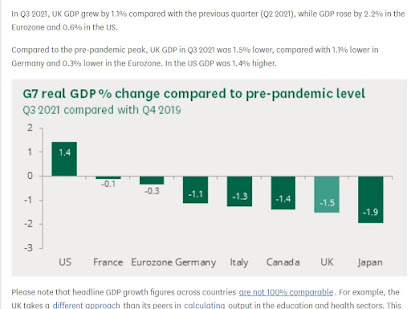Brexit Free Trade Nirvana
Campaigners point to Britain’s global trading dominance in the 19th century but there are important missing elements in this argument; politics and regulation. A genuinely free trade policy would require reduced or eliminated tariffs, certainly, but it would also require regulatory alignment and a shared political understanding between the trading parties. In the 19th century Britain was in a position to control a large element of world trade through its dominance of maritime trade routes, and a complex arrangement of regulated monopolies in the colonies. Tariff abolition, seen in the warm glow of hindsight, is frequently upheld by Free Trade promoters as a guide to future action. In fact tariff abolition in the 19th century must be seen in the context of a regulated flow of cheap commodities into Britain from the empire, through politically sponsored monopolies, and military control of the colonial trade routes. Trade in commodities was largely controlled by regulated British-funded corporate bodies, often operating under Royal Charter or Acts of Parliament. Corporate monopolies like the East India Company set the rules of trade. They held local monopolies in the colonies with exclusive rights normally reserved for sovereign states. In fact these corporate traders were components of the Imperial power, extending its reach and operating under its patronage. Any competitors thinking of setting up alternative trading arrangements could be, and were, brutally suppressed, sometimes with appalling savagery. The idealised 19th century era of “Free Trade” was in fact an era of regulated imperial trade, with low tariffs, enforced by low politics and brutal oppression.
Tariffs, politics and regulation are indispensible components of international trade. Reducing tariffs is not enough. This matters in the context of Brexit because the British empire and maritime dominance have gone. Britain can no longer exert dominance of world trade through threats of violence or projection of maritime power. The proposal for a new Free Trade Agreement (FTA) with China helps illustrate the point. In the 19th century Britain’s combination of political, military and economic power allowed it to force China to allow opium imports and sales, by British traders, against Chinese laws and interests. Britain acquired a long lease on Hong Kong, where it established a trading base for this purpose, with exclusive interests in several other Chinese ports and favourable tariff concessions, as part of its Opium war settlements. China was a faded empire with a great past but politically and economically weak. Imperial Britain was one of the vibrant rising powers. It dominated manufacturing and held a tight grip on supplies of cheap commodities. British merchants paid for Chinese imports with opium produced by cheap labour in the Indian colonies. This was a very profitable trading arrangement from a British imperial viewpoint but it was a humiliating, one-sided deal for the Indians and Chinese.
Imperial Britain was powerful enough to flood world markets with manufactured goods, swamping local competitors who struggled to find a level footing against the scale and raw power of British trading interests. The roles are reversed in the 21st century. China and India threw out the colonial system long ago. China is the dominant manufacturing power with unrivalled scale, low labour costs and a strong grip on African and South American commodities. Britain is a former empire whose days of manufacturing and trading dominance are long past. British influence is largely exercised through a series of international alliances and agreements like Nato, the EU and the UN. World trade is regulated through a complex web of agreements and standards. The World Trade Organisation (WTO) sets basic trading rules between countries. The EU is one of the primary bodies setting, and enforcing, global standards. Consumer interests are protected through national and multi-lateral rules in areas like safety, environment, technical standards and dispute resolution.
Britain’s decision to leave the EU and diverge from EU rules means it is abandoning the established trade and collective strength of the world’s largest free trade zone and its scale advantage in negotiating favourable terms of trade with third countries. Britain has decided to leave the real and present benefits of membership of the EU in exchange for assumed future benefits of a global trade free-for-all for. This is a dangerous experiment. Any gains will probably go to a small number of wealthy, well-connected investors. The losses are likely to be felt widely among working people and manufacturers.
The UK is throwing itself at the mercy of world markets with a low or no-tariff approach and minimal or no regulation. British workers, whose average industrial wage is about £28,000 per year, cannot compete with Chinese counterparts whose annual wage is less than £8,000, at best. A tariff-free trading agreement between Britain and China, free of regulatory obstacles, would result in the destruction of what’s left of British manufacturing. Such an agreement between China and the UK is likely to have disturbing echoes of the opium wars, but reversed. China is now the dominant trading power and Britain is in the weaker position. Uniquely, Britain is rushing to embrace this suicidal deal, through Brexit.
British workers have been misled though a relentless press campaign of disinformation. They have been persuaded to vote against their own best interests and have been whipped into a frenzy of irrational anger against the EU. British manufacturers who express concerns are ignored and are regularly attacked by government ministers and propagandists.
Britain is in the grip of a revolutionary clique intent on creating new free-for-all trading opportunities, which will benefit some investors but will impoverish ordinary British people. This can only be described as treasonous and those responsible should be carried away to face justice. Instead they control the government and the Tory press. Britain has voted to become a testing ground for reckless free trade ideologues who see value in national destruction.
"Quem di volunt destruere prius vesano" (Those whom the Gods wish to destroy they first make mad).


Comments
Post a Comment